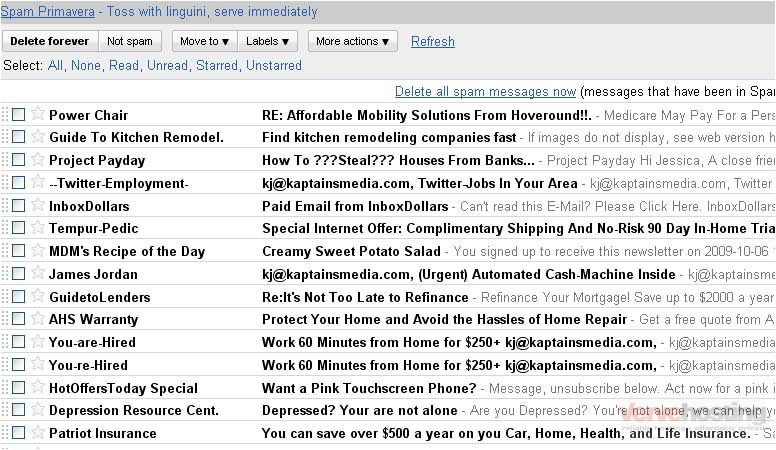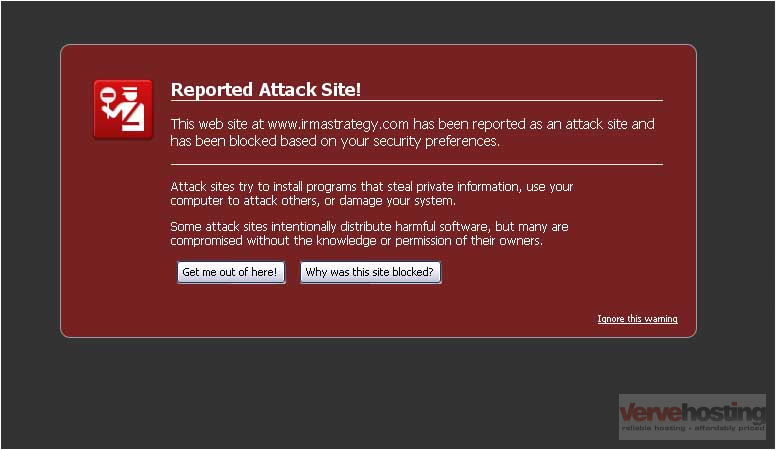Spam refers to junk email that’s sent out in mass quantities. On average, three-fourths of the email that’s sent every day is spam.
Spammers find email addresses in a variety of ways, most commonly by searching for email addresses listed on websites and by means of computer viruses and hacking.
They can then sell the lists of addresses to other spammers, and continue to pester people with an endless amount of unwanted emails.
A lot of spam is harmless, but some can contain viruses and links to scam websites. Whenever you recognize an email as spam, you should just delete it.
You should also be wary of any emails that try to imitate legitimate companies; they’ll try to steal your passwords and personal information. They may ask you to respond with it, or they may try to trick you into going to a website that isn’t real. This is known as phishing, and is perhaps the most dangerous type of spam.
Whenever you encounter phishing emails, you should try to forward the email to the company they’re imitating, if possible. They’ll definitely want to know if someone is trying to steal information in their name.
If you find yourself unable to cope with the amount of spam you’re getting, you may want to let your hosting provider know; they may be able to adjust the spam filter settings for your server.
You may also be able to configure a spam filter in your control panel account, or in your email or webmail client.
This completes the tutorial. Hopefully you now have a better understanding of what spam is, and how to combat it.

